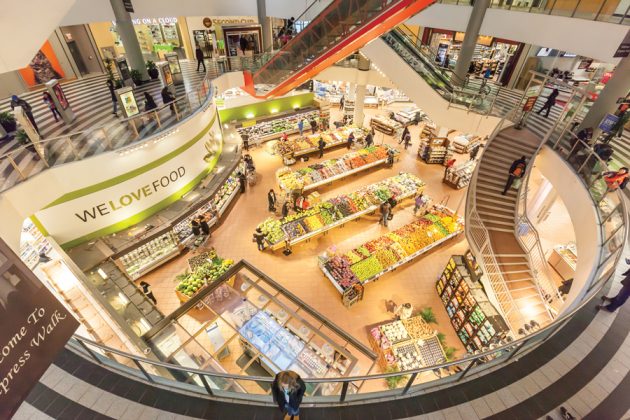
Sustainable Change: One giant leap
By Cher Mereweather
Sustainability Anthesis Provision climate change Editor pick Loblaws Net zero Photo © JHVEPhoto/Adobe Stock
Photo © JHVEPhoto/Adobe Stock Loblaws’ commitment to be net zero by 2050 reminds me of a proverb: “The awakening of a giant shakes the world”.
While we are blessed in Canada to have a rich and diverse landscape of food and beverage retail, comprising over 15,000 individual stores, Loblaws represents more than $50 billion in annual sales, more than twice that of its nearest grocery competitor and nearly a third of the total market.
So, when this giant commits to achieving net-zero carbon emissions for their operational footprint by 2040, and net-zero for Scope 3 emissions including those generated by suppliers by 2050, it does feel like our world is being shaken.
The scale of the challenge facing the industry is significant. There are 7,800 food and beverage processing/manufacturing companies in Canada, and only one (Agropur) has set a net-zero target under the Science Based Targets Initiative launched last year.
“For many SMEs, it can seem daunting when considering how they’re going to get to net zero,” says Tobias Parker, North American lead on Climate and Net Zero solutions at Anthesis Group. “But, the time to start the journey is now and many businesses will find some low-hanging fruit they can focus on in the short term.”
Almost daily an SME will reach out because they’ve been asked by a major customer for sustainability data, or to complete a reporting standard or scorecard. Most of the time, they are panicking.
We all know that running a F&B business means you are focused on the immediate and urgent priorities like getting the product out of the door, which leaves little time for things like building a plan to meet sustainability reporting requirements.
However, the problem with this approach is that when your customer asks for data you don’t have (as they inevitably will), you find yourself having to make significant investments, in both time and money, to build sustainability frameworks in a hurry. It’s a backward way of doing things, while also missing out on the value that sustainability can drive for your business.
Net-zero operations
Loblaws’ goal to achieve net-zero for emissions generated by suppliers is significant because retailers achieve their goals through their supply chain. The inclusion of Scope 3 emissions, which the GHG Protocol Corporate Standard defines as “all indirect emissions that occur in the value chain of the reporting company, including both upstream and downstream…”, means Loblaws is going to lean heavily on all its suppliers, both large and small, to achieve this impact.
At Anthesis Group we’ve set a goal to reduce emissions by 3 gigatons through our client work by the end of the decade. The only way to achieve that is by creating ways for SMEs to first understand what net zero means, and then to build and implement their own net-zero plans.
As Paul Crewe, chief sustainability officer at Anthesis Group, explains, “We are working to develop net-zero strategies for small businesses. Agri-food is one of the sectors that will deliver impact fastest. As the fifth largest exporter of agricultural and agri-food products in the world the importance of Canada’s agri-food sector cannot be understated.”
Ninety-seven per cent of the Canadian food industry is composed of SMEs and we need to work together to ensure that every single one is properly trained and supported if we are to achieve the ambitious and necessary goals in this decade and beyond.
Future Food Leaders Academy
This is why we have just launched the Future Food Leaders Academy, a new virtual community and training space to support food leaders in their path to net zero. Over a hundred companies are participating already, accessing resources and collaborating to become more sustainable, more circular and to create pathways toward net zero.
As the largest food retailer in the country, Loblaws has thrown down the gauntlet for the industry. It cannot achieve net zero without its supply chain.
This means sustainability reporting requirements for SMEs are going to accelerate. It also means the leaders of food and beverage companies of all sizes are going to need to make their own sustainability journey a priority.
There is a lot of help out there, including the Future Food Leaders Academy, to provide support. The giant has also awoken and the call from your customer is inevitable. Whether it shakes your world or not when it does happen, is up to you.
Cher Mereweather, CEO of Anthesis Provision, is a Canadian-based food industry sustainability expert.
This article was originally published in the April/May 2022 issue of Food in Canada.
Print this page